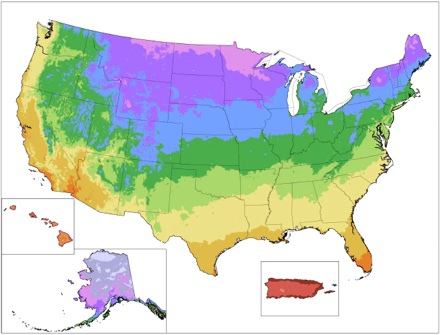Product Details
Highlights
'Topsy Turvy' (Echeveria runyonii) (Kimnach): Silvery blue rosettes with wavy, curvy leaves. This unique variety is a stable genetic sport of the species and has wonderfully distorted leaves. The foliage has a powdery coating of natural wax (farina). It produces lots of new rosettes at its base and does not grow a tall, bare stem like some Echeveria cultivars. It will develop into a nice clump and send up tall bloom stalks with orange to pink flowers each summer. This plant is fully rooted in a 3.5" round plastic container.
Echeveria need bright sunlight to maintain their colors and compact rosette form. They will not survive a hard frost, but if there is a risk of freezing temperatures they can be brought indoors to grow on a sunny window sill or under a grow light.
Like most succulents, they need great drainage and infrequent water to prevent rot. Pick containers with drainage holes and use well-draining cactus and succulent soil with 50% to 70% mineral grit such as coarse sand, pumice, or perlite. Water deeply enough for water to run out the drainage hole, then wait for the soil to fully dry before watering again.
Also known as "Mexican Hens & Chicks", Echeveria can produce new offsets or "chicks" around the base of the mother plant. These chicks can be left to form a tidy cluster or removed and transplanted. Additionally, Echeveria can be propagated from stem cuttings or mature leaves. Look to our Succulent Cuttings Guide for more information.
Product Size
3.5" Pot
Current Primary Color
Silver
All Seasonal Colors
Blue / Blue-green
Bloom Color
Orange Bloom
Grow Zone (Hardiness)
Zone 10 (30F)
Recommended Light Conditions
Bright Indoor Light
Recommended Light Conditions
Filtered / Partial Sun
Maximum Height
3"-5"
Maximum Rosette Size
7"-8"
Growth Habit / Shape
Rosette
Seasonality
Blooms in Summer
Special Characteristic
Easy to Propagate
Special Characteristic
Pet Safe
Special Characteristic
Lots of Offsets

THIS PLANT IS HARDY IN ZONES 10+
WHAT IS MY HARDINESS ZONE?
Videos
Echeveria soft succulents, sometimes known as Mexican Hens and...

![Echeveria runyonii 'Topsy Turvy' [large]](https://cdn11.bigcommerce.com/s-oqm1pc/images/stencil/631x631/products/2930/29543/topsy_turvy_klarge__53234.1723048664.jpg?c=3)
![Echeveria runyonii 'Topsy Turvy' [large] - January](https://cdn11.bigcommerce.com/s-oqm1pc/images/stencil/631x631/products/2930/20325/Echeveria_runyonii_topsy_turvy_large_2__03180.1723048664.jpg?c=3)
![Echeveria runyonii 'Topsy Turvy' [large] - January](https://cdn11.bigcommerce.com/s-oqm1pc/images/stencil/631x631/products/2930/20324/Echeveria_runyonii_topsy_turvy_large__77005.1723048664.jpg?c=3)



![Echeveria runyonii 'Topsy Turvy' [large] Echeveria runyonii 'Topsy Turvy' [large]](https://cdn11.bigcommerce.com/s-oqm1pc/images/stencil/128x128/products/2930/29543/topsy_turvy_klarge__53234.1723048664.jpg?c=3)
![Echeveria runyonii 'Topsy Turvy' [large] - January Echeveria runyonii 'Topsy Turvy' [large] - January](https://cdn11.bigcommerce.com/s-oqm1pc/images/stencil/128x128/products/2930/20325/Echeveria_runyonii_topsy_turvy_large_2__03180.1723048664.jpg?c=3)
![Echeveria runyonii 'Topsy Turvy' [large] - January Echeveria runyonii 'Topsy Turvy' [large] - January](https://cdn11.bigcommerce.com/s-oqm1pc/images/stencil/128x128/products/2930/20324/Echeveria_runyonii_topsy_turvy_large__77005.1723048664.jpg?c=3)










